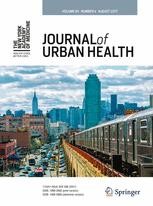While the overall rate of incarceration has declined nationally, the rate of female incarceration has increased at nearly double the rate of male incarceration since 2002.

Further, Black and Latina women from urban settings are overrepresented in the criminal justice system -- recent data show that 30% of incarcerated women are black and 16% are Latina.
Incarcerated women face many challenges. One of the biggest challenges facing women in the criminal justice system is how to get effective care, particularly when many of the women are involved in substance use or have HIV.
One SIG intervention, in fact, addresses this challenge: Project WORTH (Women On the Road To Health), which was also identified by the CDC as effective and a best practice last year. WORTH uniquely identifies the effectiveness of integrating HIV prevention, substance use, gender-based violence, and linkage to care tailored specifically for women.
Project WORTH and micro-risk environmental factors
Building on the evidence from Project WORTH, a new study by the Social Intervention Group (SIG) was conducted and just published, entitled Reproductive Health Concerns among Substance-Using Women in Community Corrections in New York City: Understanding the Role of Environmental Influences.
The purpose of this study was to understand reproductive health concerns among substance-using women in the community corrections system in New York City. The author, Dr. Anindita Dasgupta, Postdoctoral Research Fellow at SIG, along with co-authors and Drs. Alissa Davis, Louisa Gilbert, Dawn Goddard-Eckrich, and Nabila El-Bassel, write:
Given the rapidly expanding rate of incarcerated women, it is important that we consider the unique health concerns of this population. Women in the criminal justice system do not receive the health care they need and have lower rates of utilization prior to entering.
Using programs for women that were designed for male-majority prisons result in programming incongruent with the unique needs of women.
This paper addresses a major gap in the literature by describing sexual reproductive health, including abortion, miscarriage, contraceptive use, access, and use of reproductive services, of substance-using women involved in the criminal justice system.

The authors further examine the association of two major reproductive health outcomes -- abortion and miscarriage -- with risk environment factors including micro physical (homelessness, low education), social (intimate partner violence, relationship status, legal marital status), economic (sex trading, low income, unemployment), and policy/legal (community supervision and utilization of health services) factors.
How do micro risk environmental factors impact reproductive health for women?
The most interesting aspect of this study was just how high the rates of miscarriage (46%) and need for family planning support was in this sample. The women from this study were enrolled in an HIV prevention study, and therefore engaged in high HIV risk behaviors.
SIG research often focuses on HIV interventions to reduce sexual risk for these populations of vulnerable women, but what the authors found was that this population simultaneously contends with a serious sexual and reproductive health burden too.
Over half of the participant sample reported having abortions, which in and of itself is not necessarily concerning, yet 90% of the sample were not trying to get pregnant. And though the fact that most were not using any form of birth control is concerning, this offers a concrete point for providing an intervention solution.
The study further examined which environmental factors -- for example, intimate partner violence, unemployment, or arrests -- were correlated to miscarriages or abortions. One of the strongest correlations was women's experiences of intimate partner violence victimization.
How can women in the criminal justice system gain access to improved reproductive health services?
The findings in the study highlight the need for integrated and evidence-based health care for substance-using women in the criminal justice system: health services within the criminal justice system present an opportunity for women in community corrections to receive the necessary integrated health care they need. The authors conclude:
Simultaneously, there are calls for women seeking contraception and abortion services to also receive services and programming around intimate partner violence, and for better integration of reproductive health ... services for women in the correction system.
Health services within the criminal justice system present an opportunity for women in community corrections to receive the necessary integrated health care they need.
Please get in touch if you would like to learn more about adopting a SIG intervention, or want to learn more about this study. Email author Dr. Dasgupta at: [email protected].
This work was supported by the National Institute of Drug Abuse (grant #R01DA025878, and grant #DA037801), and the National Institute of Mental Health (grant #MH019139).


